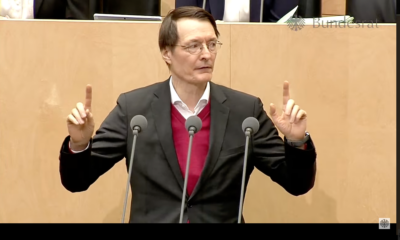Despite being Europe’s largest consumer of cannabis, France has notoriously strict laws against the drug. Now, a citizen consultation is asking for the French public’s opinion on the drug the laws surrounding it.
Deemed a failure in legislation by many, a group of French MPs from various political parties have rallied together in a bid to shift the debate on cannabis legalisation.
On 13 January , the French government launched a public consultation giving French citizens the opportunity to give their opinion on cannabis and the government’s approach to cannabis legislation.
According to France24, more than 175,000 people have already responded; a significantly higher figure than the average 30,000 responses received from similar consultations.
Open until 28 February, the consultation asks dozens of questions, covering matters such as health risks, the consequences of illegal trafficking and security issues.
Questions include: “Do you think current policies on cannabis are effective in fighting against drug trafficking?” and “Do you think the risks associated with cannabis are the same as, more serious than or less serious than those associated with alcohol consumption?”
Caroline Janvier, an MP for the La République En Marche party and member of the parliamentary committee on cannabis, anticipates that the results of the consultation could reveal that French lawmakers are “less sympathetic to the use of recreational cannabis than the public”.
“Our primary goal is to change the terms of the debate,” Janvier told France24.
“Many politicians don’t think of it as much of an issue, but France spends €568 million per year on the fight against cannabis trafficking.”
A 2016 survey revealed that 41 per cent of French citizens aged 15 to 64 had consumed cannabis on at least one occasion. This was more than double the average in Europe (18.9 per cent).
Speaking to Cannabis Health, Stephen Murphy from the data and intelligence firm Prohibition Partners, said: “The French system is pretty interesting in that it’s coming from a public health perspective.
“What we’re seeing there is a public health debate based on the prevalence [of cannabis]; it’s not like they’re looking at it from a monetary perspective, they’re looking at it within public health and social justice.”
Speaking to France24, Riobin Reda, MP in the Les Républicains party and chair of the parliamentary committee on cannabis, said: “Cannabis use is so widespread in society; we have to respond to that at a political level.
“No one should be happy with our current policy when this repressive stance is clearly not working.”
As Macron has stated previously that legalisation of cannabis will not occur while he is in office, the MPs behind the public consultation hope it will impact the presidential campaign in 2022.
Despite legalisation of cannabis in France being some way ofF yet, Murphy believes it is “positive” that the country’s leaders are acknowledging the problems with prohibition and the public health issues that come with it.
“This is the first time that [France] has properly had public conversations, so it’s testing the waters regarding national public opinion on the potential of legalisation,” Murphy said.
“The tracking of public opinion sway as groups get involved, be it pro or anti [cannabis]. People will have a different voice when there is potential policy in place; It will be interesting to see if more or less are in favour of it.”
As an increasing number of countries begin to allow the therapeutic use of medical cannabis, many French MPs are raising concerns about France’s cannabis production line.
Reda told France24: “This [a French production line] would allow France to avoid any dependence on foreign producers, to better certify the quality of products and to provide farmers with an additional source of income.”
Murphy added: “France has quite a good national healthcare policy and healthcare system, and they have a strong domestic healthcare industry, from pharmaceuticals to nutraceuticals. They have the opportunity to be self-sufficient and to be market leaders in this.”

 News6 months ago
News6 months ago
 Science5 months ago
Science5 months ago
 Industry6 months ago
Industry6 months ago
 News6 months ago
News6 months ago
 News5 months ago
News5 months ago
 Health5 months ago
Health5 months ago
 News5 months ago
News5 months ago
 Health3 months ago
Health3 months ago












